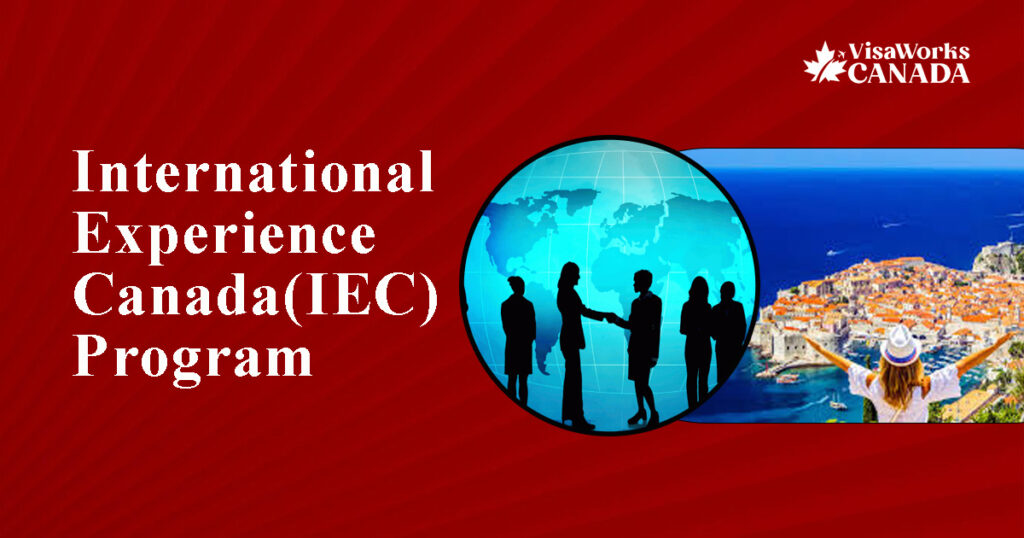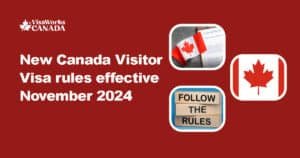The International Experience Canada (IEC) Program offers a unique opportunity for young people to explore Canada while gaining valuable work experience. It is a government initiative designed to foster cultural exchange and professional development among youth from around the world.
Table of Contents
ToggleParticipating in the IEC program allows young travellers to immerse themselves in Canadian culture, build their resumes, and create lifelong memories. This comprehensive guide will explore all aspects of the IEC program, from eligibility criteria to success stories, providing a clear understanding of how to take advantage of this incredible opportunity.
What is the International Experience Canada Program?
The IEC program is a youth mobility initiative that enables young people from participating countries to work and travel in Canada. It aims to promote cultural exchange and provide participants with international work experience.
One of the primary benefits of the IEC program is the chance to experience Canadian life firsthand. Participants can explore diverse landscapes, meet new people, and gain work experience that enhances their professional and personal growth.
History and Background
The IEC program was established to strengthen international ties and promote cultural understanding. Over the years, it has evolved to include more countries and streamline the application process.
Significant milestones in the IEC program’s history include the introduction of new work permit categories and the expansion of bilateral agreements. These changes have made the program more accessible and beneficial for a broader range of participants.
Eligibility Criteria for Participants
To participate in the IEC program, applicants must meet specific age requirements, typically between 18 and 35 years old, depending on their country of citizenship.
Additionally, applicants must be citizens of one of the countries that have a youth mobility agreement with Canada. They must also meet health and character requirements, ensuring they are fit to travel and work in Canada.
Types of IEC Work Permits
Working Holiday
The Working Holiday permit allows participants to fund their travels through short-term employment. This category is ideal for those who wish to experience Canada while earning money to support their stay.
To be eligible for a Working Holiday permit, applicants must be from a participating country and meet age requirements. This permit is popular due to its flexibility and the freedom it offers to explore Canada.
Young Professionals
The Young Professionals category is designed for those who have a job offer in Canada that contributes to their professional development. It is ideal for individuals looking to gain relevant work experience in their field.
Eligibility for this category includes having a job offer in Canada that aligns with the participant’s career path and meeting specific age and citizenship requirements.
International Co-op (Internship)
The International Co-op category is tailored for students who need to complete a work placement or internship in Canada as part of their studies. This permit provides invaluable international work experience related to their academic program.
To qualify, students must be enrolled in a post-secondary institution, have a job offer for a work placement or internship in Canada, and meet the age and citizenship criteria.
Countries Participating in IEC
The IEC program includes a diverse list of participating countries with which Canada has bilateral agreements. These agreements facilitate youth mobility and cultural exchange.
Participants from these countries can take advantage of the opportunities offered by the IEC program, enjoying a simplified process to live, work, and travel in Canada.
How to Apply for the IEC Program
Applying for the IEC program involves several steps. First, applicants must check their eligibility and gather the necessary documentation, including a valid passport, resume, and proof of health insurance.
Once eligibility is confirmed, applicants can submit their profiles to the IEC pool and wait for an invitation to apply. It’s crucial to complete the application accurately and thoroughly to avoid delays or rejections.
Processing Times and Fees
The processing time for IEC applications varies but is typically around eight weeks. Fast processing times are one of the program’s key benefits, allowing participants to start their Canadian adventure promptly.
Applicants must also be aware of the associated fees, including the IEC participation fee and the open work permit holder fee. Additional costs, such as biometrics and travel insurance, should also be considered.
Finding a Job in Canada
Job search strategies for IEC participants include online job boards, networking events, and reaching out to Canadian employers directly. Popular industries for IEC workers include tourism, hospitality, and technology.
Resources for job seekers include government job portals, recruitment agencies, and local employment services. These tools can help participants find suitable employment quickly.
Health and Travel Insurance
Health insurance is a mandatory requirement for IEC participants. It covers medical expenses, ensuring participants are protected during their stay in Canada.
When choosing an insurance provider, consider coverage options, including medical emergencies, hospitalization, and repatriation. It’s essential to select a comprehensive policy to avoid unexpected costs.
Accommodations in Canada
Participants have various accommodation options, such as hostels, shared apartments, and rental homes. Finding affordable housing can be challenging, but resources like online rental platforms and local housing boards can help.
It’s advisable to start the search early and consider short-term rentals initially, providing time to find a more permanent solution once settled in Canada.
Understanding Canadian Work Culture
Canadian workplace norms emphasize punctuality, teamwork, and communication. Adapting to these cultural differences can enhance the work experience and help build positive relationships with colleagues.
Common workplace etiquette includes being respectful, dressing appropriately, and participating in team activities. Understanding these norms will aid in a smooth transition into the Canadian work environment.
Extending Your Stay in Canada
IEC participants may wish to extend their stay in Canada. Options include applying for other work permits or transitioning to permanent residency through programs like Express Entry or Provincial Nominee Programs.
Preparing for these transitions involves understanding the requirements and starting the application process early. Guidance from immigration consultants, such as VisaWorks Canada Ltd., can provide personalized assistance.
Financial Planning and Budgeting
Effective budgeting is crucial for IEC participants. It involves managing expenses such as accommodation, transportation, and daily living costs. Setting a budget and sticking to it can help avoid financial stress.
Financial resources and support are available, including budgeting tools and financial advice services. Proper planning ensures a more enjoyable and stress-free experience in Canada.
Cultural Exchange and Networking
The IEC program offers numerous opportunities for cultural exchange and networking. Participants can engage in local events, join community groups, and participate in professional networks.
Building a network in Canada can provide support, friendship, and career opportunities. It enriches the overall experience and helps integrate into Canadian society.
Safety and Legal Considerations
Staying safe in Canada involves being aware of one’s surroundings, following local laws, and understanding one’s rights and responsibilities. Canada is generally a safe country, but it’s essential to take precautions.
Legal resources and support are available for IEC participants. These include government services, legal aid organizations, and support from employers.
Challenges and How to Overcome Them
Common challenges faced by IEC participants include finding housing, adapting to a new culture, and navigating the job market. However, these challenges can be overcome with proper planning and support.
Strategies for overcoming these challenges include using available resources, seeking advice from fellow participants, and staying flexible and open-minded.
Future of the IEC Program
The IEC program continues to evolve, with trends indicating potential expansions and policy changes. Staying informed about these developments ensures participants can take full advantage of new opportunities.
Future projections suggest that the program will continue to be a vital part of Canada’s approach to fostering international connections and youth mobility.
Resources and Support for IEC Participants
Various resources are available to support IEC participants. Government websites provide detailed information, while support services and organizations offer guidance and assistance.
Professional immigration consultants, such as VisaWorks Canada Ltd., can provide personalized help with applications and transitions, ensuring a smooth and successful experience.
Conclusion
The International Experience Canada Program is a fantastic opportunity for young people to work, travel, and grow in Canada. It offers a chance to gain valuable experience and immerse oneself in Canadian culture.
From expert visa services to comprehensive guidance on permanent residency, study visas, and business ventures in Canada, we’re here to help you navigate every step of your journey. Contact VisaWorks Canada Ltd. now for personalized assistance.
Frequently Asked Questions (FAQs)
What is the IEC program?
The IEC program is a youth mobility initiative that allows young people from participating countries to work and travel in Canada.
How long does the IEC application process take?
The processing time for IEC applications is typically around eight weeks.
Do I need health insurance for the IEC program?
Yes, health insurance is mandatory for all IEC participants.
Can I extend my stay in Canada after my IEC permit expires?
Yes, you can apply for other work permits or transition to permanent residency through programs like Express Entry or Provincial Nominee Programs.
What types of jobs can I get with an IEC work permit?
Popular industries for IEC workers include tourism, hospitality, and technology. You can search for jobs using online job boards and local employment services.
The IEC program offers an enriching experience, and with the right preparation and support, it can be a stepping stone to greater opportunities in Canada.








